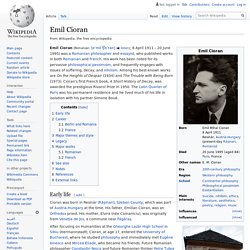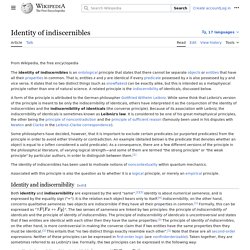

Nineteenth Century Philosophy. You’ve been actively communicating philosophical ideas to a wider public for many years, through books such as Practical Ethics, and more recently The Life You Can Save, The Most Good You Can Do, and Ethics in the Real World, but also through introductions to the work of past philosophers—I’m thinking particularly of the three Very Short Introductions in the Oxford University Press series you’ve written or co-written: the ones on Hegel, Marx, and Utilitarianism, all of which relate to your book choices here.

How important is it to you to reach a wide audience, to make philosophy accessible to a general reader? It’s very important. Albert Camus Explains Why Happiness Is Like Committing a Crime—"You Should Never Admit to it” (1959) Note: You can read a translation below.

Happiness, as it has been conceived for at least the past couple thousand years in Western philosophy, is a problem. For the Greeks, happiness was only one component of Eudaimonia, a general human flourishing that must be developed along with ethics, personal growth, and social and civic duty in order for a life to have purpose and meaning. “Positive psychology speaker” Dr. Nico Rose reminds us that the concept contrasts with Hedonia (as in “hedonism”), which relates solely to personal pleasure and enjoyment, such as the kind famously indulged in by many an ancient tyrant. These are not mutually exclusive categories. The New York Times - Breaking News, World News & Multimedia. Podcast list. The Best Philosophy Books. The philosophy of George Eliot. George Eliot’s philosophy is central to her fiction.

Image: CSU archives/ Everett Collection/Bridgeman Images “My mind presents an assemblage of disjointed specimens from history, ancient and modern; scraps of poetry picked up from Shakespeare, Cowper, Wordsworth and Milton; newspaper topics; morsels of Addison and Bacon, Latin verbs, geometry, entomology and chemistry, reviews and metaphysics—all arrested and petrified and smothered by the fast-thickening, everyday accession of actual events, relative anxieties, and household cares and vexations.” So wrote Mary Ann Evans in 1839, in a letter to her friend Maria Lewis. She was 19 years old and her intellectual appetites were voracious. Robert Sokolowski. Robert Sokolowski (3 May 1934 — ) is the Elizabeth Breckenridge Caldwell Professor of Philosophy at The Catholic University of America and a monsignor of the Roman Catholic Church.

An author published in a variety of sub-disciplines of philosophy, he is noted mainly for his interpretation of Husserl, named "East-Coast Husserlianism. "[1] His Introduction to Phenomenology has been translated into seven other languages.[2][self-published source] Life[edit] Early life[edit] Barbara Smoker. Barbara Smoker (born 2 June 1923) is a British Humanist activist and freethought advocate.

She is also a former President of the National Secular Society (1972–1996), former Chair of the British Voluntary Euthanasia Society (now known as Dignity in Dying) (1981–1985) and was an Honorary Vice President of the Gay and Lesbian Humanist Association in the United Kingdom. Biography[edit] Barbara Smoker was born in London in 1923 into a Roman Catholic family. She served in the Women's Royal Naval Service from 1942 to 1945 in southeast Asia. Enlightenment Now by Steven Pinker – Panorama Magazine. BY: Emma Romeu Photos: Shutterstock, LatinStock y EFE Following the news could easily make us believe that our time is ever more difficult and violent and that human prosperity may have reached its limit, making it difficult to progress further.

Nonetheless, Steven Pinker, a Harvard University professor of psychology who is a popular writer on language, the mind, and human nature, has written a book that posits an alternative way of looking at the world. Ludwig Klages. German psychologist and philosopher Ludwig Klages (10 December 1872 – 29 July 1956) was a German philosopher, psychologist and a theoretician in the field of handwriting analysis.

He was nominated for the Nobel Prize in Literature.[2] Life[edit] Emil Cioran. Romanian philosopher and essayist Emil Cioran (Romanian: [eˈmil t͡ʃoˈran] ( listen); 8 April 1911 – 20 June 1995) was a Romanian philosopher and essayist, who published works in both Romanian and French.

His work has been noted for its pervasive philosophical pessimism, and frequently engages with issues of suffering, decay, and nihilism. Among his best-known works are On the Heights of Despair (1934) and The Trouble with Being Born (1973). Identity of indiscernibles. Impossibility for separate objects to have all their properties in common A form of the principle is attributed to the German philosopher Gottfried Wilhelm Leibniz.

While some think that Leibniz's version of the principle is meant to be only the indiscernibility of identicals, others have interpreted it as the conjunction of the identity of indiscernibles and the indiscernibility of identicals (the converse principle). Because of its association with Leibniz, the indiscernibility of identicals is sometimes known as Leibniz's law. It is considered to be one of his great metaphysical principles, the other being the principle of noncontradiction and the principle of sufficient reason (famously been used in his disputes with Newton and Clarke in the Leibniz–Clarke correspondence). Some philosophers have decided, however, that it is important to exclude certain predicates (or purported predicates) from the principle in order to avoid either triviality or contradiction. Roger Scruton. English philosopher Sir Roger Vernon Scruton FBA FRSL (; 27 February 1944 – 12 January 2020) was an English philosopher and writer who specialised in aesthetics and political philosophy, particularly in the furtherance of traditionalist conservative views.[3][4] Early life[edit] Family background[edit]

Consciousness Doesn’t Depend on Language - Issue 76: Language. The contrast could not have been starker—here was one of the world’s most revered figures, His Holiness the Fourteenth Dalai Lama, expressing his belief that all life is sentient, while I, as a card-carrying neuroscientist, presented the contemporary Western consensus that some animals might, perhaps, possibly, share the precious gift of sentience, of conscious experience, with humans.
The setting was a symposium between Buddhist monk-scholars and Western scientists in a Tibetan monastery in Southern India, fostering a dialogue in physics, biology, and brain science. Buddhism has philosophical traditions reaching back to the fifth century B.C. David Harvey. David W. Harvey FBA (born 31 October 1935) is a British-born Marxist economic geographer and Distinguished Professor of anthropology and geography at the Graduate Center of the City University of New York (CUNY). The Ethics Centre - Bringing ethics to the centre of everyday life. The secret to Trump’s success? It’s sheer existential dread. In a recent experiment, American participants were asked: “Please describe the emotions that the thought of your own death arouses in you” and “Write down as specifically as you can what you think will happen to you physically as you die and once you are dead.”
Moments later, those who had been asked to contemplate their mortality reported more negative attitudes towards immigrants, greater opposition to a mosque being built in their neighbourhood, and a greater likelihood of voting for Donald Trump for president. What could possibly explain these findings? In The Denial of Death (1973), cultural anthropologist Ernest Becker argued that while humans share a basic biological predisposition towards self-preservation with all life forms, we are unique in our capacity for symbolic thought, including self-awareness. This gives rise to the unsettling realisation that death is inevitable, can occur at any time, and that we are ultimately no more significant or enduring than turtles or turnips. Kathleen Higgins. Kathleen Marie Higgins (born 1954) is an American Professor of Philosophy at the University of Texas at Austin where she has been teaching for over thirty years.[1] She specializes in aesthetics, philosophy of music, nineteenth and twentieth-century continental philosophy, and philosophy of emotion.
Education and career[edit] Higgins earned her B.A. in music from the University of Missouri–Kansas City and completed her graduate work in philosophy at Yale University, receiving her M.A., M.Phil, and Ph.D. Professor Higgins has taught at the University of California, Riverside, and she is a regular visiting professor at the University of Auckland. Professor Bio Page. Robert C. Solomon. Robert C. Solomon (September 14, 1942 – January 2, 2007) was an American professor of philosophy at the University of Texas at Austin, where he taught for more than 30 years.
Professor Solomon won many teaching honors, including the Standard Oil Outstanding Teaching Award in 1973; the University of Texas President's Associates Teaching Award (twice); a Fulbright Lecture Award; University Research and National Endowment for the Humanities Grants; and the Chad Oliver Plan II Teaching Award in 1998. René Girard. Edmund Husserl.
Phenomenology (philosophy) Jean-Paul Sartre. Rameau's Nephew. New book claims Albert Camus was murdered by the KGB. Sixty years after the French Nobel laureate Albert Camus died in a car crash at the age of 46, a new book is arguing that he was assassinated by KGB spies in retaliation for his anti-Soviet rhetoric. Italian author Giovanni Catelli first aired his theory in 2011, writing in the newspaper Corriere della Sera that he had discovered remarks in the diary of the celebrated Czech poet and translator Jan Zábrana that suggested Camus’s death had not been an accident.
Now Catelli has expanded on his research in a book titled The Death of Camus. Camus died on 4 January 1960 when his publisher Michel Gallimard lost control of his car and it crashed into a tree. The author was killed instantly, with Gallimard dying a few days later. Three years earlier, the author of L’Étranger (The Outsider) and La Peste (The Plague) had won the Nobel prize for “illuminat[ing] the problems of the human conscience in our times”. Catelli has spent years researching the validity of Zábrana’s account. Pierre-Joseph Proudhon. Prima facie. Burden of proof[edit] For example, in a trial under criminal law the prosecution has the burden of presenting prima facie evidence of each element of the crime charged against the defendant. Philosophy Talk. Ram Dass Here and Now Podcast Archives – Be Here Now Network. Ram Dass first went to India in 1967.
He was still Dr. Richard Alpert, a prominent Harvard psychologist and psychedelic pioneer with Dr. Timothy Leary. The Wisdom of Ram Dass Is Now Online: Stream 150 of His Enlightened Spiritual Talks as Free Podcasts. Image by Barabeke, via Creative Commons “Over the course of his life, it would appear that Ram Dass has led two vastly different lives,” writes Katie Serena in an All That’s Interesting profile of the man formerly known as Richard Alpert.
Meaning of life. Grief. My experience with Hodgkin's lymphoma (& neuroendocrine tumors) After the doctor had tried the debulking surgery but then discovered too many tumors and closed me back up, I kept falling asleep from medication and exhaustion. Each time, I woke up, I’d have to remember that the surgery didn’t go well. “Your tumors are still all there,” I had to tell myself. “There is nothing you can do.” It seemed so surreal to be sitting here in recovery with no hope of getting better. I had to keep reminding myself that I wasn’t leaving to go home, but to hospice. The surgery revealed lots of small tumors threaded throughout my bowels. Ethics Explainer: The story behind Plato's Cave - The Ethics Centre. This story offers the reader an insight into one of Plato’s central concepts, namely, that eternal and unchanging ideas exist in an intellectual realm which we can only access through pure Reason.
Western philosophy may be traced back to Ancient Greece.